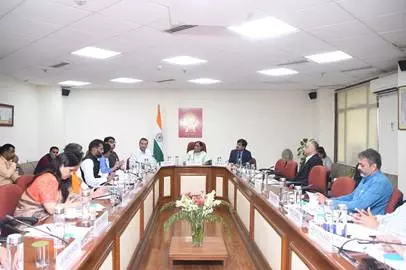The National Human Rights Commission (NHRC) organized an open house discussion on ‘Preventing beggary and rehabilitation of individuals engaged in beggary’ at its premises on Friday. Chairing it, NHRC, India Acting Chairperson, Vijaya Bharathi Sayani, said despite rapid economic progress and several initiatives and welfare programmes implemented by both the Centre and State governments, the continuing practice of begging indicates deep socio-economic disparities in the country. As per the 2011 census, there were more than 413 thousand beggars and vagrants in India.
They include women, children, transgender and elderly who are forced to beg for survival. She said earlier, giving and accepting alms was part of spiritual practices aimed at cultivating humility but these days an act of charity has detached from its original intent and become begging either due to poverty or criminal activities even involving the trafficking of persons including children for this purpose generating a substantial amount of money for their captors. Further, as a result of societal neglect, physically challenged individuals have no choice but to depend on others for survival and daily sustenance.
Sayani said the Commission was dedicated to protecting the human rights of these individuals, ensuring they are treated with dignity and fairness. In this context, she also highlighted the importance of the Support for Marginalized Individuals for Livelihood and Enterprise (SMILE)-B Scheme, which focuses.

















